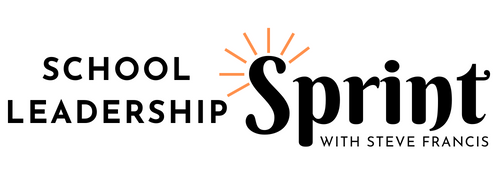Setting the Year Up For Success
Each year is a fresh opportunity in schools. In setting up for success this year, what needs the attention of your leadership team? If leaders could be just 1% more…
First Things First – Prioritising that works
It is vital that leaders in schools prioritise and use their time well. This session unpacks a key process for prioritising the work that needs to get done.
High Functioning Leadership Teams
High functioning leadership teams are aligned, use their time well and are open and honest in their communication. This session unpacks the four essential elements of High Functioning Teams.
Meetings – Making Sure They Are A Good Use of People’s Time
It is vitally important that the time we spend in meetings is a good use of people’s time. This session revisits the vital aspects of effective meetings.
Time Efficient Line Management Processes
Line management processes need to be both effective and time efficient. Includes a tight timeline for a 30 minute one-on-one line management meeting.
5 Essential Elements of Leading Effective Change
The implementation of school improvement strategies requires careful planning for the 5 essential elements for leading effective change.
Crystal Clear Role Clarity
Position descriptions are often generic and fail to provide clarity. Using this format ensures leaders are clear on the key aspect of their role and the outcomes they are responsible for.
Mastering Difficult Conversations
Leaders sometimes have to have ‘difficult conversations’. This session unpacks a clear process to prepare for a difficult conversation.
Getting Traction – Turning Goals Into Action
This session unpacks the Priority Planning format to plot out and plan the actions necessary to successfully achieve our goals.
Having Great Impact Using the 80/20 Rule
Identifying and protecting the critical few tasks that lead to most of your results is essential, especially when we are busy and have so much to do. Understanding and utilising the 80/20 rule is powerful.
The Power of Living the Reputation You Want to Have
What would you like your reputation as a leaders to be? Living the reputation you would like to have as a leader is a powerful way of making a deliberate choice in our leadership behaviours.
EMAIL OVERLOAD
Leaders are overloaded by email and it is having a negative effect on their productivity and well-being. This session unpacks well-researched strategies for managing email.
Multi-tasking Isn’t the Answer – What should you do instead?
Many leaders feel they have to multi-task. However, research shows that multi-tasking is inefficient and stressful. This session provides an alternative approach that gets more done.
Unlocking Your School Culture
Building a Positive School Culture is the key work of leaders. We provide and use an instrument to reflect on the key aspects of your school culture.
Managing the Well-Being of Others
The number one factor impacting staff morale is leadership. We unpack key strategies that leaders can implement to boost staff morale.
Are You Leading or Managing? – What’s the Difference?
It is vital that school leaders work on BOTH operational and strategic levels to ensure their school operates effectively and achieves it’s school improvement goals.
Utilising Your Strengths – watching out for your blindsides
Identifying, understanding and utilising your strengths is important for leaders. Teams need coverage of four domains – Executing, Influencing, Relationship Building and Strategic Thinking.
Building Trust is #1 Leadership Skill
Schools are people places. The ability to build Trust is the #1 leadership skill. This session focuses on the behaviours that build trust.
Effectively Managing Resistance to Change
Effectively managing resistance to change is one of the challenges facing school leaders. There are 7 reasons why change processes fail and each one can be avoided.
Differentiating Your Leadership
Leaders should differentiate their leadership style to suit the people they are leading. This session focuses on choosing the correct leadership style.
6 Critical Questions Effective Teams Should be Able to Answer
This session explores Lencioni’s six critical questions effective teams should be able to answer. Getting clarity and alignment on the responses to these questions is crucial.
Teacher Feedback
The quality of teaching is the most significant in-school factor affecting student outcomes. In this session we consider the pros and cons of feedback models used in various parts of the world.
How Aligned and Engaged Are Your People?
This session unpacks an instrument that is designed to gather staff perceptions on key issues that lead to the alignment and engagement of staff.
Understanding What Drives Your People
Understanding what drives and motivates each of the people that you lead is beneficial. This session unpacks the 7 drivers and how they apply in school contexts.
Four Criteria Used to Judge Leaders
This session unpacks the four key areas of capability that leaders need to have to be effective. Using this framework helps leaders to become more self-aware.

























